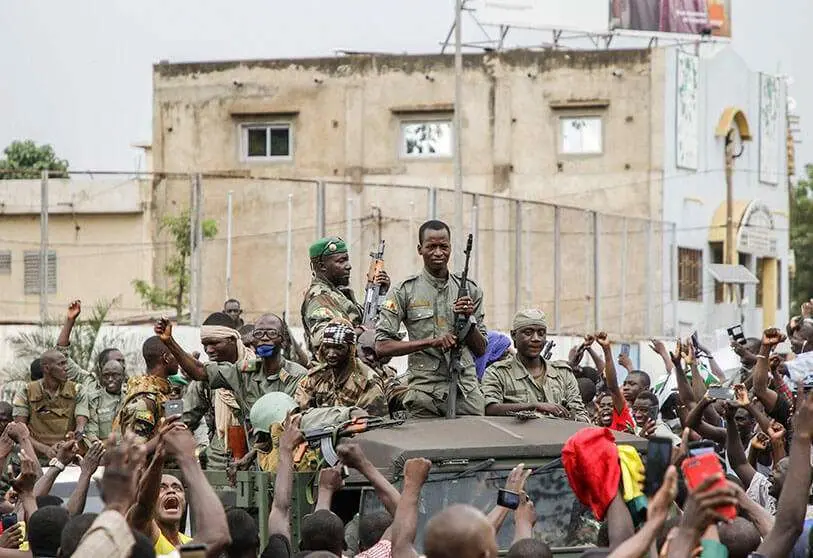Coup in Mali

On 18 August last, a coup d'état was staged in the Republic of Mali. The media have tiptoed over the issue by merely reporting the basics, while international public opinion has moved on from the subject. It is clear that there are coups that interest us more and others that we don't even care about. After having left some time to analyse the consequences and the positions of the international community, it is time to remember what has happened, who benefits, who or who is behind it and to point out the direction the country will take.
The Republic of Mali has a territory of 1,240,192 square kilometres, somewhat like two and a half times Spain, or the same area as the Republic of Peru. It has a population of 21 million people and has been independent from France since 1960. Of the 189 countries analysed by the United Nations Human Development Index, Mali ranks 184th, making it one of the poorest countries on the planet. Despite being landlocked and occupying a large area of the Sahara desert, Mali has very important natural resources such as gold, lithium, phosphate, uranium, oil and kaolin.
This coup would be the fourth since its independence and has been carried out by a significant sector of the army. The whole international community was quick to condemn it, expressing concern about the state of the constitutional president Ibrahim Boubacar Keita (popularly known as IBK) and calling for a return to the democratic path. Following the verification of the deposed president's situation on the ground and interviews by the African Union, United Nations and European Union with the coup leaders, it seems that everything has been well tied up. The foreign companies are safe and the colonel in charge of the coup plotters, Assimi Goita, assures that elections will be held in the country as soon as possible, after putting the administration in order.
In other words, everything seems to be back to normal after several days of crisis. But we still do not know who is behind the coup, who supports it and what are the interests of the putschists. We have to remember that in the Saharan north of the country there was an attempt of independence in 2012 led by the Tuaregs, which was suffocated with the intervention of the French Legion. Also in the Sahel, for several years now, armed groups of DESA and al-Qaeda have been fighting at will for control of the area, although they are currently engaged in clashes between the two organisations. Mr Daesh's capacity for action has reached several districts of the capital, Bamako, and poses a real danger to the country's stability.
There are also rumours on the diplomatic mats that Russia is backing the coup, even allowing it to be prepared from Moscow, where several military personnel involved in the coup were conducting studies. It might seem fairly plausible that Russia would seek to gain a foothold in Africa, from which it is fairly distant, and that the deposits, particularly of lithium, kaolin and gold, were among its priorities of interest. But all this is only a conjecture.
We will hear about what is really happening in Mali and what course the de facto government will take in the coming months. For the time being, they have managed to silence the doubts of the international community and have a period of grace to put the situation back on track.
Francisco Pineda Zamorano. Expert in International Relations and Cooperation

